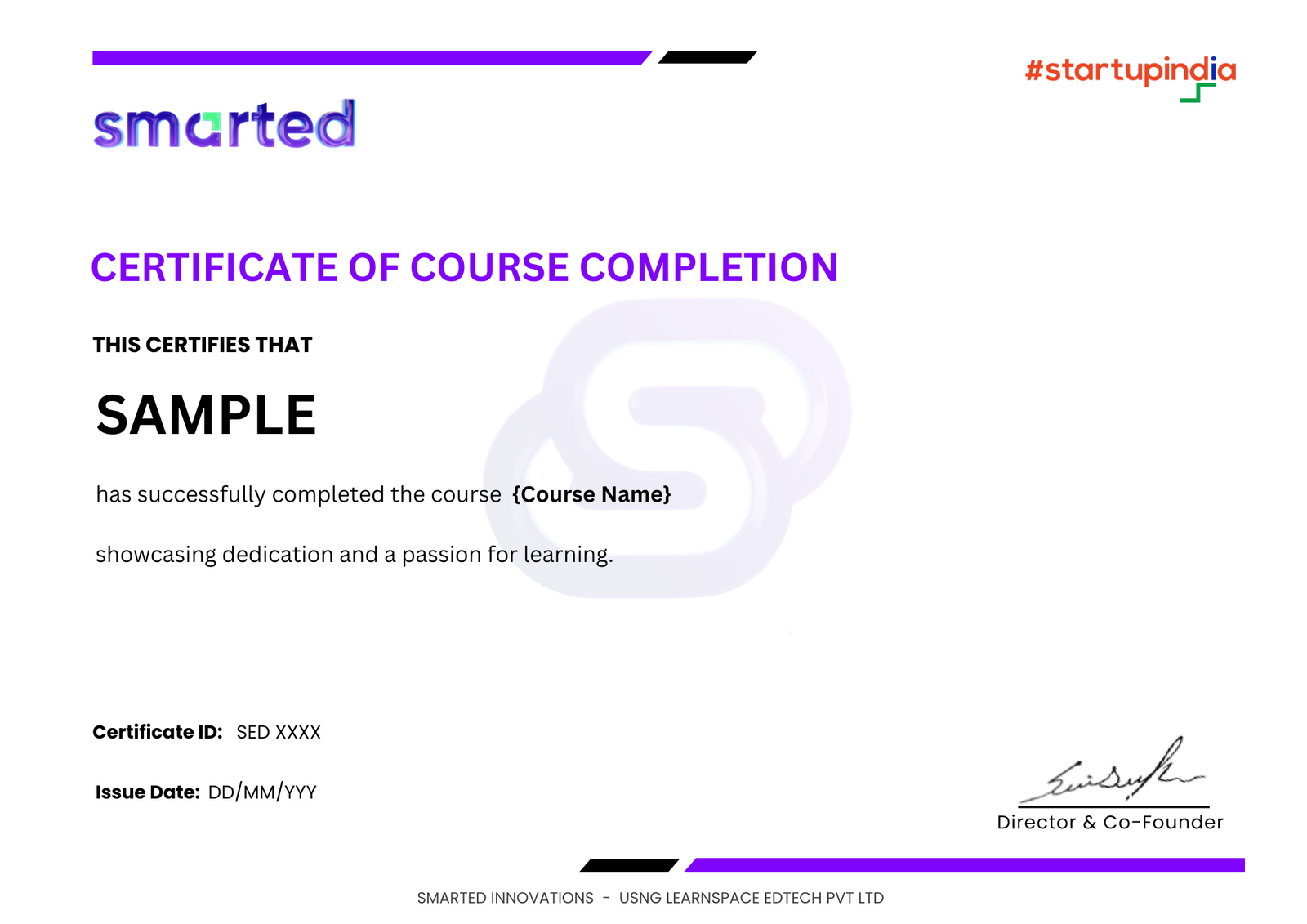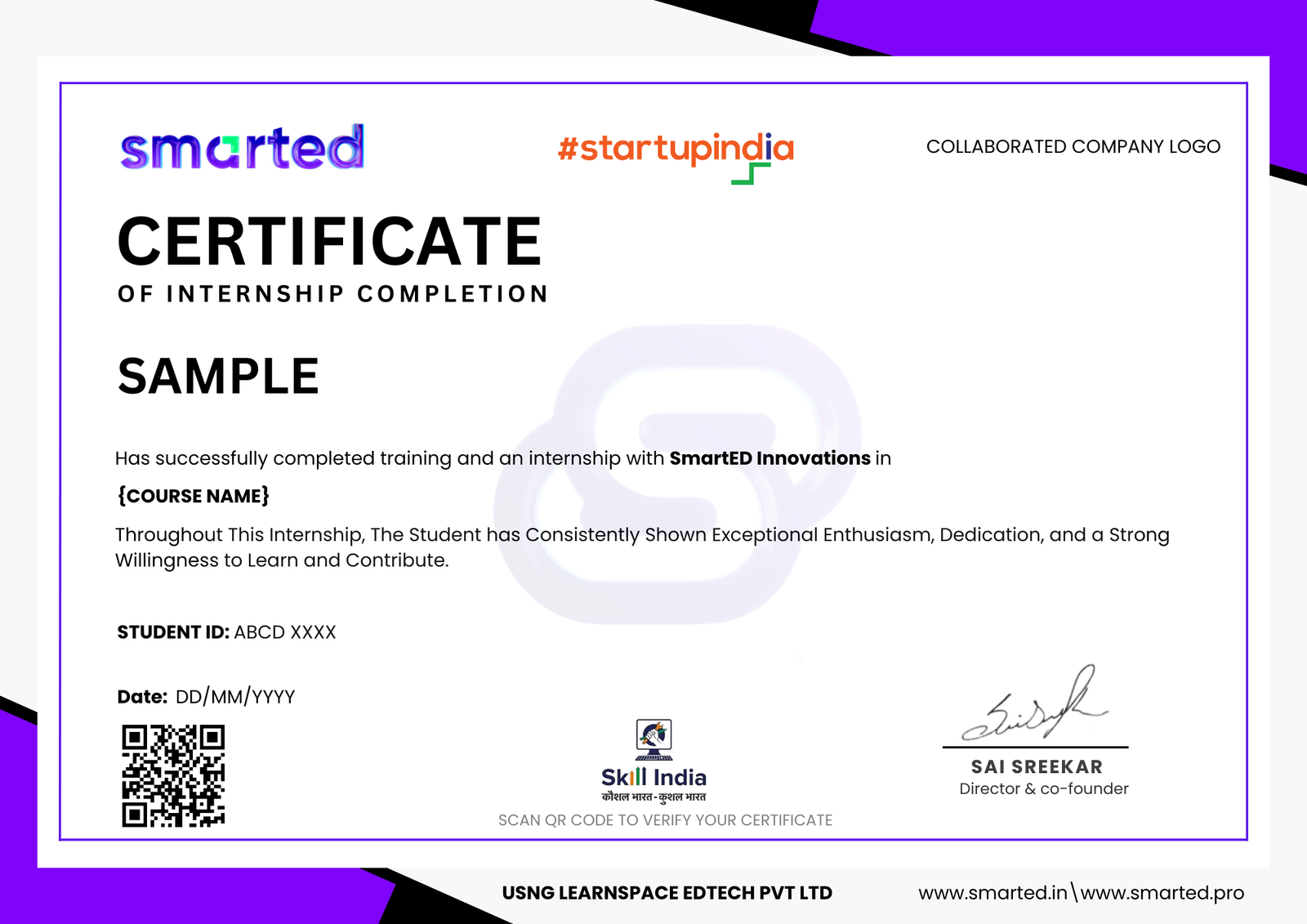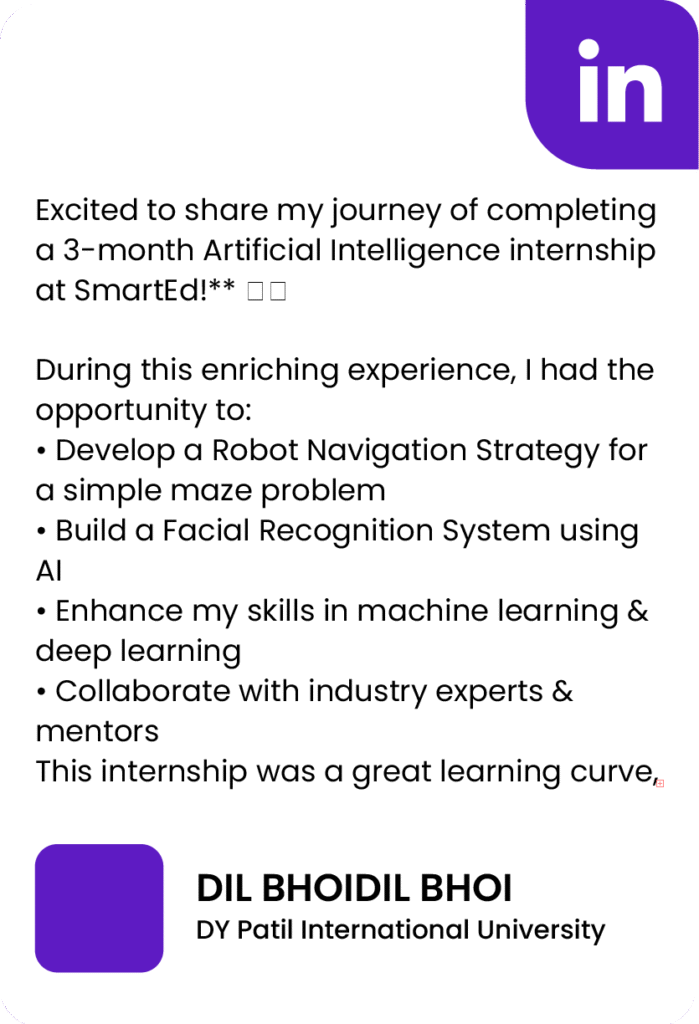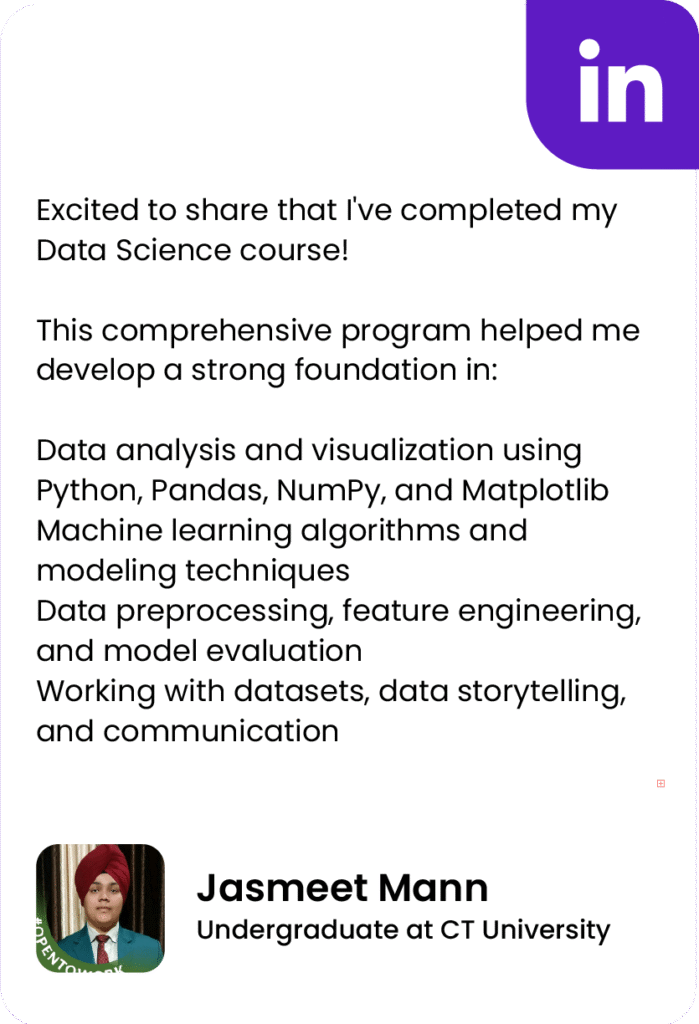Genetic Engineering ⭕
Genetic Engineering
Batch Starts Every 5th, 15th, 25th of Every Month
- 2721 students
- Duration: 2-3 Months
Descriptions
SmartED’s Genetic Engineering program offers students a deep dive into the fast-evolving world of genetics, molecular biology, and biotechnology. The curriculum blends foundational genetic principles with hands-on exposure to tools like PCR, CRISPR, cloning vectors, and bioinformatics. Students explore genetic engineering applications in agriculture, medicine, and industry through interactive virtual lab sessions using platforms like Labster and Learn.Genetics. The course culminates with a capstone project where learners apply genetic techniques to propose or simulate a solution to a real-world problem in healthcare, agriculture, or environmental biotech.
Key Points
- Understand Core Genetics & Molecular Biology
- Practice in Virtual Lab Simulations
- Explore Agricultural Biotechnology & CRISPR
- Master Tools & Techniques in Genetic Engineering
- Learn Bioinformatics & Synthetic Biology
- Dive into Medical & Industrial Biotech
Course Lessons
- Topics: DNA, genes, chromosomes, Mendelian genetics
- Capstone: Trace a trait using Mendel’s laws
- Homework: Create a heredity chart from family traits
- Topics: DNA replication, transcription, translation
- Capstone: Simulate protein synthesis from DNA sequence
- Homework: Label and explain the central dogma of biology
- Topics: Applications, benefits, ethical considerations
- Capstone: Research real-world uses of genetic engineering
- Homework: Write a summary on gene modification examples
- Topics: PCR, restriction enzymes, gel electrophoresis
- Capstone: Run a simulated gel electrophoresis in virtual lab
- Homework: Match tools to their application in genetic workflows
- Topics: Plasmids, vectors, transfection, transformation
- Capstone: Design a cloning experiment using a vector
- Homework: Diagram the process of bacterial transformation
- Topics: Transgenic crops, CRISPR in farming
- Capstone: Propose a genetically modified plant project
- Homework: Research GMO pros and cons in Indian agriculture
- Topics: Gene therapy, molecular medicine, pharmacogenomics
- Capstone: Design a gene therapy model for a genetic disorder
- Homework: Compare traditional and personalized medicine
- Topics: Enzyme production, biofuels, bioremediation
- Capstone: Case study on microbial use in waste treatment
- Homework: List biotech companies and their environmental work
- Topics: CRISPR-Cas9, synthetic biology, bioinformatics
- Capstone: Present on a cutting-edge genome editing technology
- Homework: Explore a gene editing case in agriculture or health
- Topics: DNA extraction, PCR, bacterial transformation
- Capstone: Complete all virtual simulations and generate reports
- Homework: Reflect on learning outcomes from virtual exercises
Projects
- Objective:
Design or simulate a genetic engineering solution for a real-world issue in agriculture, medicine, or environmental sustainability.
- Requirements:
Define a genetic problem statement, Propose a genetic solution using relevant tools (e.g., CRISPR, gene therapy, transgenics), Support your solution with data or research, Include a flowchart of genetic workflow and risk analysis, Create a report or simulated demonstration.
- Teamwork:
Individual or small group presentation with visuals, logic, and scientific rationale.

Instructor

Mentor
This course includes:
- 20+ hours on-demand video
- Lifetime LMS Access
- Course Completion Certificate
- Co-Branded Internship Completion Certificate
- 2 Minor Projects and 1 Major Project
Upon successfully completing this course, you will receive a certificate of completion that helps potential employers assess your proficiency.


Government Certified
Earn NSDC Certification
Benefits of NSDC Certification:
- Government-Recognized Credential
- Industry-Accepted Validation
- Enhanced Employability
- Added Value for Higher Education & International Opportunities
- Alignment with Skill India Mission
- National Skill Registry Entry





